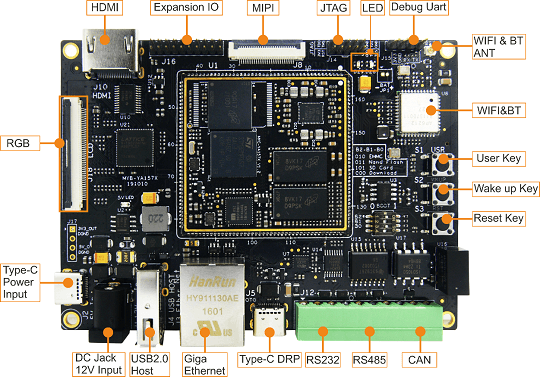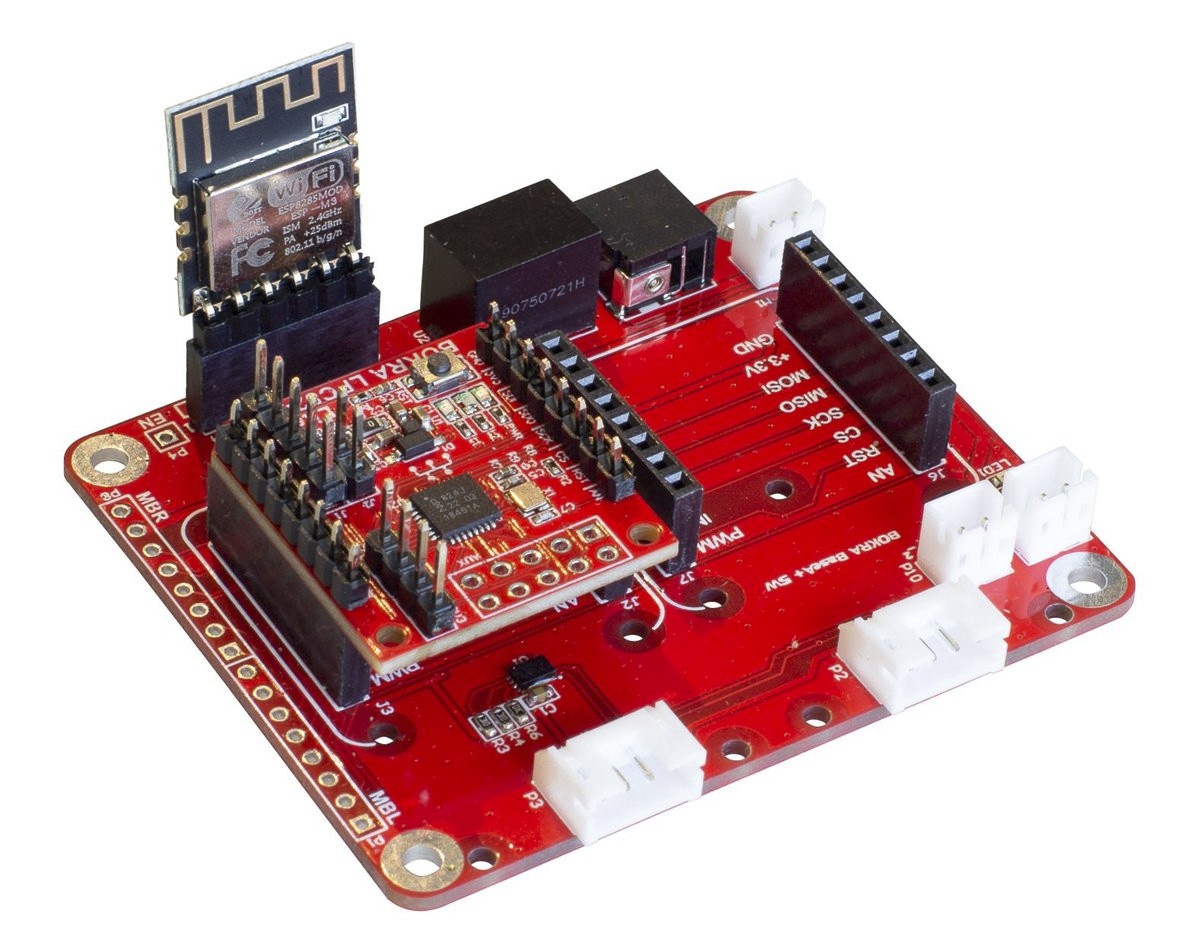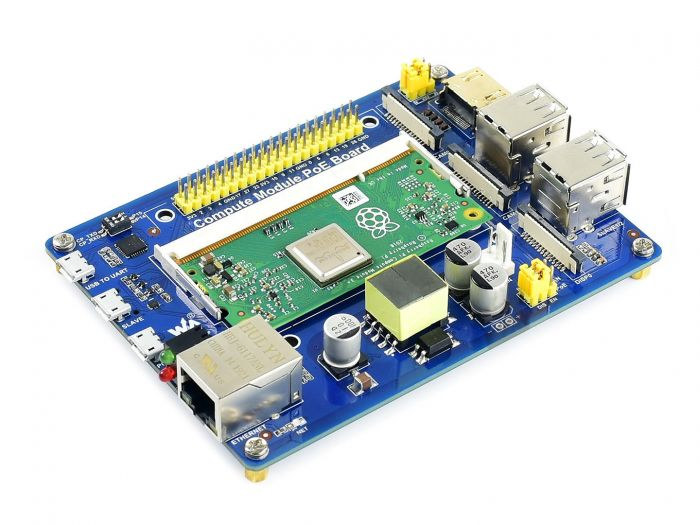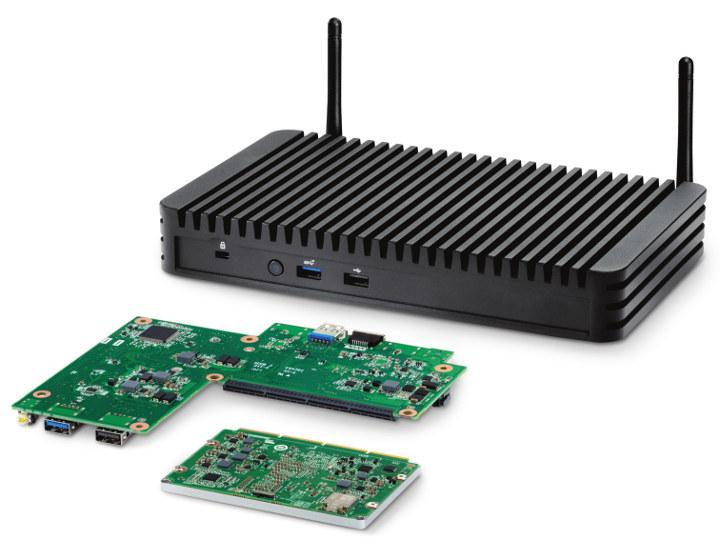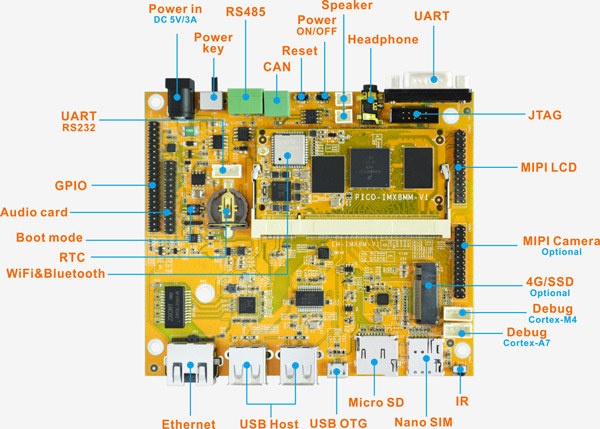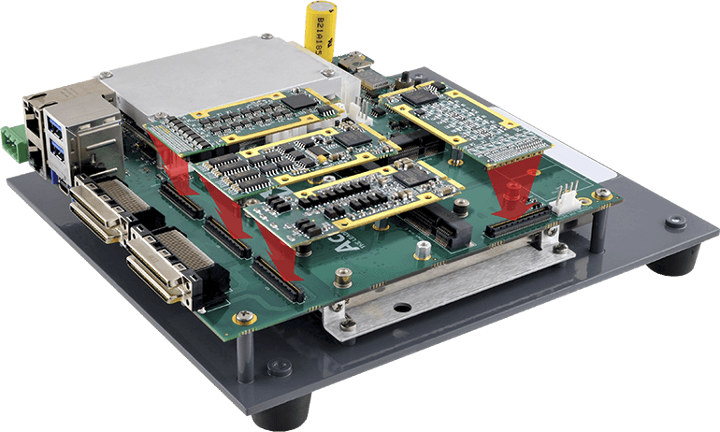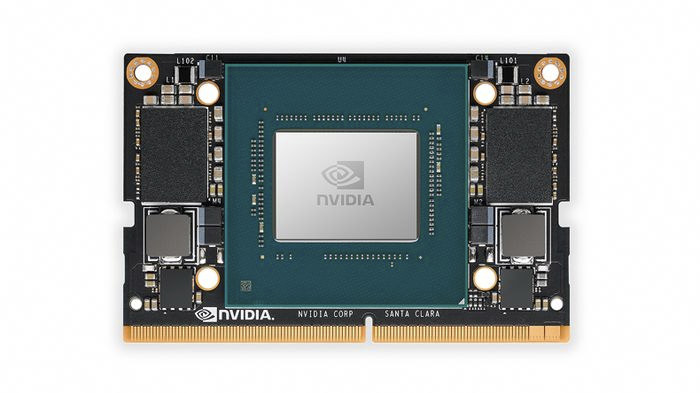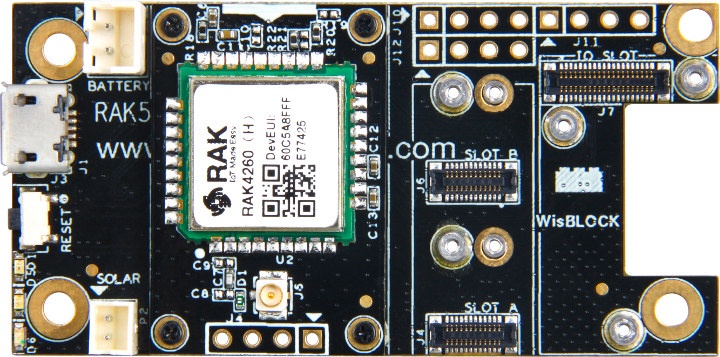MYIR, the Chinese based company that has developed several ARM-based hardware solutions, has introduced a new SoM powered by the ST’s STM32MP1 microprocessor called the MYC-YA157C CPU Module with an accompanying development board known as the MYD-YA157C development board. Early last year, STMicro announced the introduction of the STM32MP1, the first STM32 MPU (Microprocessor Unit) that features one or two Arm Cortex-A7 cores running Linux, as well as an Arm Cortex-M4 real-time core making it possible to use previous STM32 codes on the new unit. Although, less than 1-year-old, the STM32MP1 microprocessor has since be deployed on a couple of development boards like the STMicro’s own discovery kits and evaluation platform, Emtrion emSBC-Argon, PanGu single-board computer, and even octavo systems unveiled the OSD32MP15x system-in-package. One primary observation with these other developments boards is their relatively steep cost, and something MYIR aims to address. MYiR MYC-YA157C STM32MP1 CPU Module The MYC-YA157C […]
BOKRA NXP LPC824 and Nordic nRF52832 powered MCU Modules Follow MikroBUS Form Factor
We first wrote about MikroElectronika MikroBUS socket in 2015 while covering an SBC which featured one MikroBUS socket supporting one of the 150 Click boards available at the time. There are now over 700 Click boards to choose from, with the tiny modules offering motor drivers, buttons, short-range connectivity, UART and other interfaces, as well as various sensors. But BOKRA had another idea: developing MCU based systems-on-module following MikroBUS form factor. BOKRA LPC824 Lite module The first of those modules is BOKRA LPC824 Lite with the following specifications: MCU – NXP LPC824M201JHI33 Arm Cortex-M0+ microcontroller @ 30 MHz with 32KB Flash Memory, 8 KB RAM I/O MikroBUS headers with SPI, I2C, UART, PWM, GPIOs 10-pin “Serial” header 4-pin I2C Grove connector for Seeed Studio I2C Grove modules Debugging interface – SWD Misc – Reset button, power LED, 2x user LEDs Power Supply – 5V/500mA via MIC5528 regulator Dimensions – 28.6 […]
$38 Compute Module PoE Board Works with Raspberry Pi CM3/CM3+ Modules
Raspberry Pi 3 Compute Module was first introduced in 2017 with CM3 and CM3L systems-on-module with or without 4GB eMMC flash for $25 and up before the company launched an update earlier this year with CM3+ modules equipped with a slightly faster processor and up to 32GB eMMC flash for $25 to $40. If you wanted to evaluate the solution for your project you’d have to spend well over $100 for either the official development kit or third-party solutions such as balenaFin which may not support all features of the modules out of the box. We previously wrote about Waveshare Compute Module IO Board Plus similar to the official devkit and going for $50 without the actual module. The company has now designed a more compact board that also supports Ethernet and PoE out of the box selling for just $37.99 plus shipping on Seeed Studio or Waveshare not including […]
Intel Austin Beach is a Modular, Fanless NUC Powered by Intel NUC Compute Elements
Unveiled last May, Intel NUC Compute Element is a family of cards that should cost less than the failed Computer Cards, and easy to handle than your typical computer-on-module. The first Compute Elements showcased at Computex 2019 were powered by a 15-Watt Core U-series processor, and now various models will find their way into Intel Austin Beach fanless NUC with “Chandler Bay” NUC Compute Elements powered by Whiskey Lake processors. Intel Austin Beach specifications: Chandler Bay Compute Element (one or the other, all 15-W Whiskey Lake) BKCM8CCB4R – Intel Celeron 4305U 2-core/2-thread processor with 4GB LPDDR3, 64GB eMMC storage BKCM8PCB4R – Intel Pentium Gold 5405U 2-core/4-thread processor with 4GB LPDDR3, 64GB eMMC storage BKCM8i3CB4N – Intel Core i3-8145U 2-core/4-thread processor with 4GB LPDDR3 BKCM8i5CB8N – Intel Core i5-8265U 4-core/8-thread processor with 8GB LPDDR3 BKCM8v5CB8N – Intel Core i5-8365U 4-core/8-thread vPro processor with 8GB LPDDR3 BKCM8i7CB8N – Intel Core i7-8565U 4-core/8 […]
Boardcon EM-IMX8M-MINI SBC Drives a MIPI DSI Display via NXP i.MX 8M Mini Processor
We’ve been covered SBC’s and SoM’s from Boardcon for at least 5 years, with our latest article detailing Boardcon Idea3399 SBC powered by Rockchip RK3399 processor, and launched this September. The company has now launched another single board computer with EM-IMX8M-MINI featuring an NXP i.MX 8M Mini system-on-module (SoM) with 2GB LPDDR4, 8GB eMMC flash, and wireless connectivity. The board is designed for a “wide range of multimedia applications” and offers a MIPI DSI interface for LCDs up to 1920×1080 resolution. Boardcon EM-IMX8M-MINI specifications: SOM-IMX8M-MINI SoM (aka PICO-IMX8MM-V1) SoC – NXP i.MX8M Mini Quad with 4x Arm Cortex-A53 @ up to 1.8GHz, Arm an Arm Cortex-M4F real-time microcontroller @ 400MHz, Vivante GCNanoUltra 3D GPU, and Vivante GC320 2D GPU System Memory – 2GB LPDDR4 RAM Storage – 8GB eMMC 5.1 flash, QSPI NOR flash Connectivity – 802.11n WiFi 4 and Bluetooth 4.0 via an Ampak AP6236 module I/Os via 200-pin […]
Acromag COM Express Type 10 Mini-ITX Carrier Card Supports Four Acropack mini PCIe Modules
Acromag, a company based in Michigan and specialized in the industrial I/O market, has recently launched ACEX4041 COM Express Type 10 Mini-ITX carrier card which supports up to four of the company’s AcroPack mini-PCIe I/O modules. ACEX4041 COM Express Type 10 Mini-ITX Carrier Card The Mini-ITX form factor of the board enables it to interfaces four plug-in AcroPack I/O modules to an Intel Atom E3950 (Apollo Lake) CPU module with provisions for both M.2 and SATA SSD data storage and a variety of peripherals on-board. ACEX4041 specifications: SoM Compatibility Electrical and mechanical interface for industry-standard COM Express Type 10 Mini (55mm x 84mm) CPU modules with four PCIe lanes configured as an x4 port for optimal performance. Current CPU Option – Intel Atom E3950 quad-core, 1×4 PCIe configuration, 1.6/2.0GHz (Turbo) , 4GB RAM, 12W. PCIe Switch – 9-port 12-lane PCIe Gen 2 switch expands the single host PCIe x4 port […]
NVIDIA Jetson Xavier NX SoM Delivers up to 21 TOPS for AI Workloads at the Edge
NVIDIA has just announced Jetson Xavier NX system-on-module, with the company claiming it is the “world’s smallest, most powerful AI supercomputer for robotic and embedded computing devices at the edge” with a 70x45mm “Jetson Nano” form factor, and delivering either up to 14 TOPS at 10 Watts or 21 TOPS at 15 Watts. The company expects the module to be used in small commercial robots, drones, intelligent high-resolution sensors for factory logistics and production lines, optical inspection, network video recorders, portable medical devices, and other industrial IoT systems. Jetson Xavier NX specifications: SoC – NVIDIA Xavier with 6-core NVIDIA Carmel ARM v8.2 64-bit CPU, 6MB L2 + 4MB L3 caches, and a 384-core NVIDIA Volta GPU with 48 Tensor Cores, 2x NVDLA deep learning accelerators delivering up to 21 TOPS at 15 Watts System Memory – 8 GB 128-bit LPDDR4x @ 51.2GB/s Storage – 16 GB eMMC 5.1 flash Video […]
RAKWireless RAK4260 is a Tiny LoRAWAN Module based on Microchip SAMR34 LoRa SiP
Rakwireless has just announced a new module part of their LPWAN family: RAK4260 LoRaWAN module based on Microchip ATSAMR34J18B LoRa SiP and at just 15x15x1.2 mm, one of the smallest LoRaWAN modules in the market. The new module is cheaper than the company’s earlier RAK811 module and consumes less power at just 790 nA in sleep mode. The company also provides a RAK4260 evaluation board with easy access to GPIOs and serial interfaces. RAK4260 LoRaWAN Module Specifications: SiP – Microchip ATSAMR34J18 SiP with SAM L21 Arm Cortex M0+ MCU @ 48 MHz, up to 40 KB RAM, up to 256 KB Flash LoRa Connectivity Frequency Range – 862 to 1020 MHz High level of accuracy and stability (32MHz TXCO) Max Tx Power: 20dBm; Max Sensitivity: -148dBm; Rx Current: 17mA (typical) Compliant with LoRaWan 1.0.2 Expansion – Castellated holes with I2C, SPI, ADC, UART, GPIOs Power Consumption Low RX current of […]


